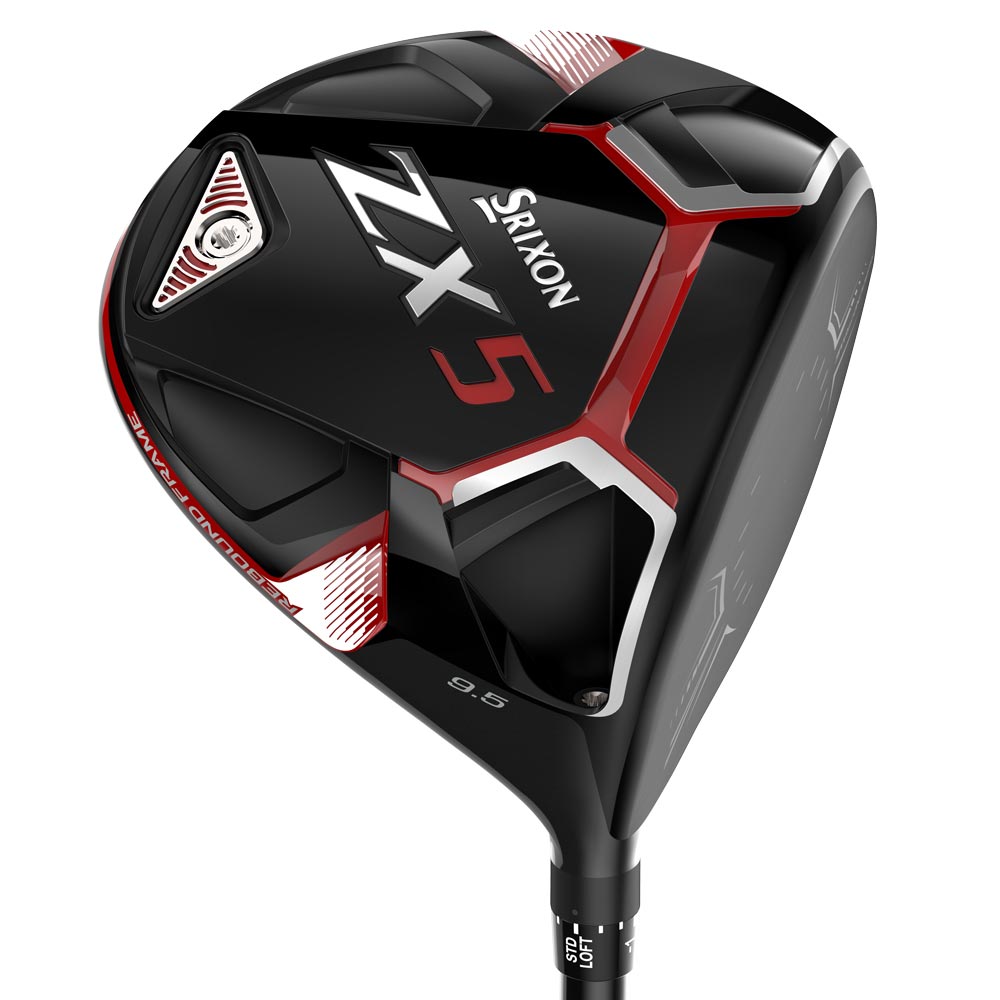
Should you be using a mid- or low-spin driver? It depends on what you’re trying to accomplish.
Getty Images
Welcome to Gear Questions You’re Afraid to Ask, a GOLF.com series produced in partnership with Cleveland/Srixon Golf. In this week’s edition, we explore if you’re better off rolling with a low- or mid-spin driver.
Should I choose a low- or standard-spin driver?
This one is tricky. To know if you need a driver that promotes more or less spin, let’s take a quick field trip and brush up on how spin works with a driver in the first place, and then we can get into some recommendations on what you might need.
In simple terms, backspin is generated by striking the ball at an angle. Every drive you hit produces some measure of backspin, and your angle of attack is also influenced by loft, clubface angle and clubhead path, which means spin is predicated on a lot of things and both golf equipment fitters and swing instructors regularly spend countless hours helping their clients dial in proper spin rates to ensure optimal distance and shot shapes.
Changing your swing to affect your spin rates is not easy to do — some of us simply have steep or flat swings that even when we are swinging are best, may produce driver hits that either spin too much or too little.
Equipment manufacturers know it’s a tall order for a golfer to reduce his/her proclivity to hit high-spin or low-spin drives. This is one reason they make drivers that come in either standard-spin or low-spin configurations. How this is usually done is by both adjustable and internal weighting schematics, and also by shaft selection.
Here’s how it works: placing weight farther and lower in the driver clubhead to push the center of gravity (CG) back — factors such as the club’s MOI and dynamic loft increase — leads to higher backspin. Conversely, when weight is forward in the clubhead, the MOI and dynamic loft decreases for lower spin. Also, the shaft you use plays a huge part in how much spin is generated. Shafts with stiff low sections toward the clubhead (known as the tip) generate less spin than those with softer lower sections which produce more spin.
A good example of the difference between low-spin and standard-spin drivers is to compare Srixon’s ZX5 and ZX7 drivers. The ZX5 has a more triangular shape, meaning weight can be placed deeper in the clubhead for a higher launch than the ZX7, which has a more rounded profile. Both yield long ball flights, but the ZX7 will produce a flatter trajectory.
We could geek out on this for days and get into the weeds pretty quickly, but maybe it’d be better to get back to your original question before we get a little lost here.
All of our market picks are independently selected and curated by the editorial team. If you buy a linked product, GOLF.COM may earn a fee. Pricing may vary.
Srixon ZX5 driver
Gain total confidence with the all-new Srixon ZX5 Driver. Featuring Srixon’s new Rebound Frame Technology, the ZX5 Driver focuses your energy into the golf ball for incredible speed and distance.
The easy answer is for you to book an appointment with a club-fitter and hit a few drives on a launch monitor. This will help you determine your optimal driver spin rate because your angle of attack, clubhead speed and ballspeed play such a huge part in the process.
If you want a general rule of thumb, I’ll tell you this: if you have a slower swing speed, having some extra spin off the tee will help you launch the ball higher for a longer flight. You can get this via picking up a driver with low and deep internal weighting, a higher loft, and sometimes by using a softer shaft flex profile.
If you have a fast swing speed and your ball balloons upward in the air, a low-spin driver can chop down your spin rates for a more penetrating launch. Low-spin drivers may have stiffer shaft profiles (and/or stiff tip sections) and CGs placed forward and closer to the clubface.
There’s also the issue of accuracy as well.
“Driver fitting is definitely player dependent,” said Andy Victoriano, VP of Customer Experience and Tour Relations at True Spec Golf. “The majority of players that create more spin tend to hit the ball more accurately. So, if your goal is to hit straighter shots, then a higher spin driver is usually the way to go. On the other hand, if you want more distance, choosing a low-spin driver with an optimized launch angle will help you hit it further. All said though, these are generalized recommendations. Dialing in the optimal driver spin rate comes down to a myriad of factors that are unique to each and every player, and choosing between a standard or low-spin clubhead is a big part of our fitting process here at True Spec.”
Finally, remember that optimizing spin off the tee should have just as much to do with what you want to achieve versus what you can achieve. You may hit it farther with a low-spin driver, but is the opportunity cost worth it if your accuracy decreases and you hit more curvy shots? Or how important is it to you to eke out that extra few yards of carry with a higher-spinning driver when maybe you’d be better off hitting it lower with more rollout when it lands?
Determining your ideal driver spin, and furthermore, what driver head you want versus need is a personal decision, so look inward to find your answer. And of course, an experienced and knowledgeable club-fitter will help you make the right choice.
Want to overhaul your own bag for 2022? Visit the expert fitters at our sister company, True Spec Golf. For more on the latest gear news and information, make sure to check out our recent Fully Equipped podcast in the Spotify link below.










